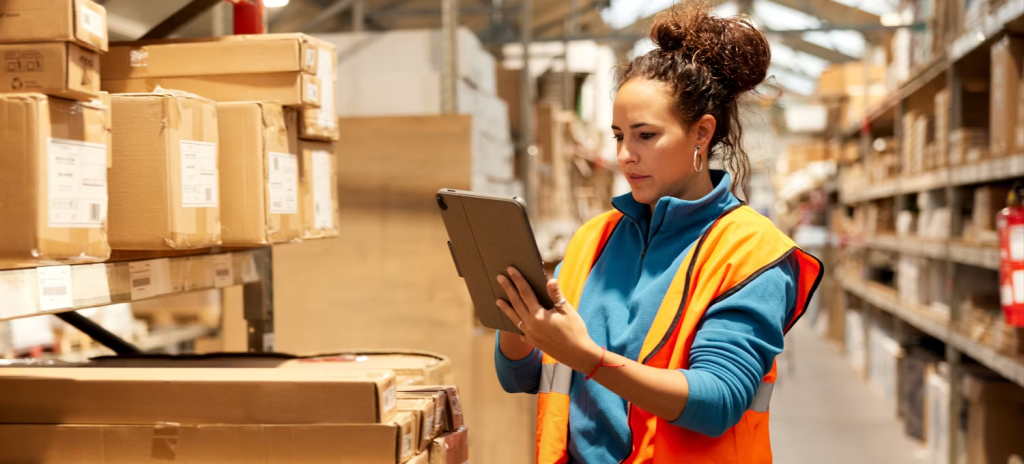The Power of Custom Rules and Automation in Logistics Platforms
In today’s fast-moving logistics and supply chain management world, speed, accuracy, and adaptability are non-negotiable. Businesses handling hundreds or thousands of orders daily cannot afford manual processes that slow down operations, create errors, and increase costs.
It is where custom rules and automation in logistics platforms play a transformative role. By enabling businesses to design workflows that align with their unique operational needs, logistics platforms with powerful rule engines and automation features empower brands to scale efficiently and deliver superior customer experiences.
This article explores the meaning, benefits, and practical applications of custom rules and automation in modern logistics platforms and why adopting them is essential for future-ready supply chains.

What Are Custom Rules in Logistics Platforms?
Custom rules refer to user-defined logic and conditions that automate decision-making within a logistics platform. Instead of relying on generic, fixed workflows, businesses can build specific rules to handle complex operational scenarios automatically.
For example:
- Order Routing Rules: If an order’s destination is within California and the SKU weight is below 5kg, route it to the Los Angeles warehouse for fulfillment.
- Carrier Selection Rules: For international orders valued over $500, select a carrier with full insurance coverage by default.
- Inventory Replenishment Rules: When inventory levels fall below the safety stock threshold, trigger an automatic purchase order to suppliers.
These rules are set up through user-friendly rule builders within logistics platforms, requiring no coding knowledge, yet providing granular control over operations.
What Is Automation in Logistics Platforms?

Automation is using technology to perform repetitive or rules-based tasks without manual intervention. In logistics, this includes:
- Automated inventory updates
- Automatic label printing and carrier booking
- Auto-generating customs documents for international shipments
- Automated customer notifications for order status updates
When combined with custom rules, automation ensures tasks are executed accurately and instantly based on real-time data and predefined conditions.
Benefits of Custom Rules and Automation in Logistics Platforms

1. Increased Operational Efficiency
Manual processes create bottlenecks, especially during peak seasons. Custom rules eliminate repetitive decision-making by automating processes according to your business logic. Automation reduces human errors, speeds up workflows, and ensures consistency across all fulfillment operations.
2. Faster Order Fulfillment
Orders are fulfilled faster by automating routing, picking, packing, and shipping processes. For example, when placing an order, the platform automatically selects the optimal warehouse, generates the shipping label, and books the carrier within seconds, ensuring rapid dispatch.
3. Cost Optimization
Custom rules can prioritize cost-effective options. For instance, automatically selecting the lowest-cost carrier for non-urgent deliveries or consolidating shipments when multiple orders go to the same region reduces shipping expenses.
4. Improved Inventory Management

Automation keeps inventory data accurate in real time, preventing stockouts or overstocking. Custom replenishment rules trigger supplier orders automatically when inventory reaches reorder points, maintaining optimal stock levels without manual tracking.
5. Enhanced Customer Experience
Customers expect fast, accurate, and transparent order updates. Automated tracking notifications and error-free order processing build trust, increase satisfaction, and encourage repeat purchases.
6. Scalability and Flexibility
As your order volume grows, managing logistics manually becomes unsustainable. Automation and custom rules ensure you can handle growth without increasing operational costs linearly or hiring additional large teams.
Real-world Applications of Custom Rules and Automation

1. Intelligent Order Routing
A leading apparel brand uses custom rules in its logistics platform to route orders based on proximity, stock levels, and warehouse workload. If Warehouse A exceeds capacity, orders automatically reroute to Warehouse B, ensuring balanced workloads and avoiding delays.
2. Carrier Selection Optimization
An electronics retailer sets rules to choose express delivery for high-value items, standard shipping for items under $50, and eco-friendly carriers for domestic orders under 2kg, aligning logistics operations with business goals and sustainability policies.
3. Automated Returns Processing
For returns, custom rules assess product conditions and automatically generate refunds, replacement orders, or restocking workflows, reducing manual review time and improving customer satisfaction.
4. Cross-border Documentation Automation
Automation generates customs invoices and compliance documents for international sellers based on destination country rules, product types, and order values, significantly speeding up cross-border shipments.
Why Your Business Needs These Capabilities

Without custom rules and automation, logistics teams waste countless hours on repetitive decisions and manual data entry, increasing operational costs and delaying order processing. In a competitive e-commerce environment, this can result in poor customer experiences and lost revenue.
By implementing a logistics platform with robust custom rules and automation features, your business gains:
- End-to-end process visibility and control
- Reduced manual workloads for logistics teams
- Faster, error-free order processing
- Operational agility to respond to market changes
The PostalParcel Advantage

At PostalParcel, our logistics platform is built to empower brands with:
- Flexible rule builders to automate routing, carrier selection, inventory alerts, and more
- Seamless integration with your sales channels, carriers, and ERP systems
- Advanced automation for order fulfillment, returns, and cross-border logistics
Our clients achieve faster order processing, improved inventory accuracy, and greater customer satisfaction, allowing them to focus on confidently growing their business.
Final Thoughts
In an era where logistics efficiency defines brand competitiveness, custom rules and automation are no longer optional but essential. They turn your logistics operations from reactive and manual to proactive, intelligent, and scalable.
If your logistics workflows rely heavily on manual processes, then explore platforms offering customizable automation. The future belongs to businesses that can deliver smarter, faster, and more efficiently, and logistics automation is the key to unlocking that potential.
Ready to automate your logistics workflows and scale smarter? Contact our team to learn how PostalParcel’s powerful platform can transform your operations.
Industry Insights
news via inbox
Nulla turp dis cursus. Integer liberos euismod pretium faucibua








